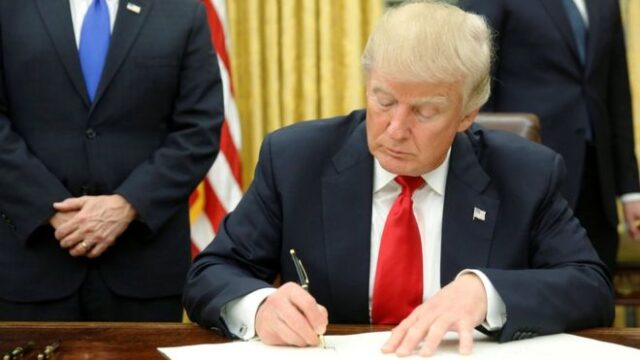US jobs growth was faster than expected in May, as employers added 223,000 positions.
The unemployment rate fell further to 3.8%, having fallen to 3.9% the previous month, bringing the rate to an 18-year low.
The average hourly pay of private sector workers increased 2.7% year-on-year, compared with 2.6% in April.
Surveys of economists had predicted that there would be a gain of about 188,000 jobs in May.
Analysts said the positive jobs data fuelled expectations that the central bank, the Federal Reserve, would raise interest rates at its next meeting later this month.
The unemployment rate has not been this low since April 2000 and has already fulfilled the Fed’s forecast of 3.8% by the end of 2018.
President Donald Trump previewed the strong jobs report with a Twitter post, writing that he was “looking forward” to seeing the numbers.
The tweet raised eyebrows due to its allusion to embargoed data, which the White House has access to prior to its release.
President Trump has been rebuked previously for celebrating jobs figures within an hour of their publication, a violation of a federal rule intended to preserve the neutrality of the statistics.
Mark Hamrick, senior economic analyst for Bankrate.com, said the president’s post “doesn’t look good” even if he avoided an outright break of the embargo.
“This is another case where… President Trump would be wise to spend his time doing something other than tweeting,” he said.
Economist Lawrence Summers, who held top economic posts under Bill Clinton and Barack Obama, wrote on Twitter that a similar statement made in those administrations “would have been a major scandal”.
However, the president’s decision to draw attention to the report underscored the positive numbers, which added to other healthy economic indicators.
All major sectors of the US economy registered job gains last month. Construction added 25,000 jobs in May after notching up gains of 21,000 jobs the month before.
Manufacturing created another 18,000 jobs last month in addition to the 25,000 created in April.
Revised data for March and April also showed the economy adding 15,000 more jobs than previously thought. Economists had previously said bad weather was to blame for slower job growth over those two months.
Even the widest measure of unemployment – including people working part-time and discouraged workers – is hovering at its lowest rate since 2001.
While wage growth was not as strong as might be expected given the tightening labour market, economists said they expect these figures to rise in coming months.
BBC




